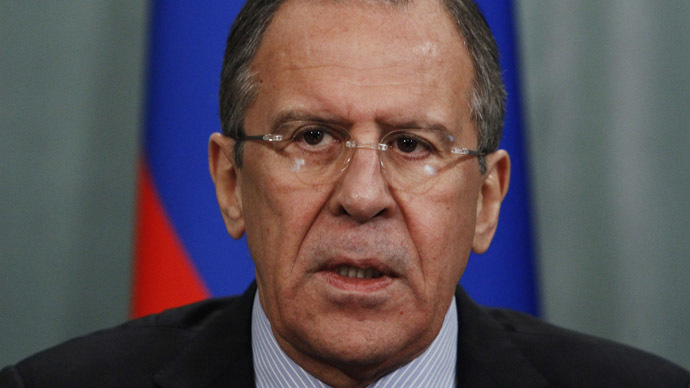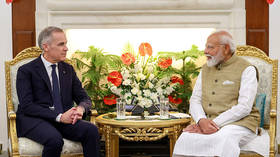Russia: Snowden didn't cross border, US accusations groundless

Washington’s allegations over US fugitive Edward Snowden are ‘unacceptable’ as he never crossed the Russian border, Russia’s Foreign Minister Sergey Lavrov has said. As a consequence, any attempt to accuse or threaten Moscow by the US is unfounded.
“Russia has nothing to do with Snowden's movements, he chose
his route himself and didn't cross the Russian border,” said
Lavrov, responding to a question by RT’s correspondent at a press
conference with the Algerian foreign minister.
According the Reuters sources at Sheremetyevo airport, Snowden arrived on Sunday with a valid ticket to Havana on Monday which he did not use. He is reportedly not able to cross the Russian border because he is not in possession of a valid visa. Moreover, the whistleblower’s passport is thought to have been revoked a day after he fly out of Hong Kong to Moscow on Sunday.
“For this reason we consider all attempts to accuse Russia of violating American law and conspiring against the US unfounded and unacceptable,” stress Lavrov, adding that the Kremlin does not tolerate threats.
Lavrov’s statements follow strong US rhetoric threatening
consequences if Moscow does not comply with the US extradition
order against Snowden under the espionage act.
"We expect the Russian government to look at all options available to expel Mr. Snowden back to the US to face justice for the crimes with which he is charged," White House National Security Council spokeswoman Caitlin Hayden stressed on Sunday, when Snowden reportedly arrived in Moscow.
WikiLeaks, which is reportedly aiding Snowden
in his asylum bid, confirmed on Monday that he was en route to Ecuador via Moscow. The Ecuadorian
government said it has received the application for asylum and is
currently processing it.
In order to get to Ecuador from Moscow, Snowden will have to
transfer in Cuba, however, Sheremetyevo Airport officials have
told Russian media that he was on neither Monday’s or Tuesday’s
flights to Havana.
Former CIA contractor Edward Snowden fled the US for Hong Kong in
May, where he handed over classified information regarding the
US’ mass internet surveillance program, PRISM, to The Guardian
newspaper. Since then, the US has been relentlessly pursuing him
and has issued an extradition order against him under the
espionage act.
After China did not hand Snowden over on the
grounds that the extradition documents submitted by the US were
not sufficient to warrant his arrest, Washington stepped up its
rhetoric. The Obama administration said it
was “disappointed” in China and threatened consequences
for bilateral relations.
The White House has branded Edward Snowden as a traitor and
called on all countries in the northern hemisphere to aid in his
extradition to the US.
During a visit to Saudi Arabia on Tuesday, US Secretary of State John Kerry implored Russia to be “calm” and turn over Snowden, saying Washington was not seeking a “confrontation” with Moscow.
Responding to Russia’s staunch rejection of US criticism over the
affair, Kerry continued that the transfer of the former NSA
contractor was a matter of rule of law.














